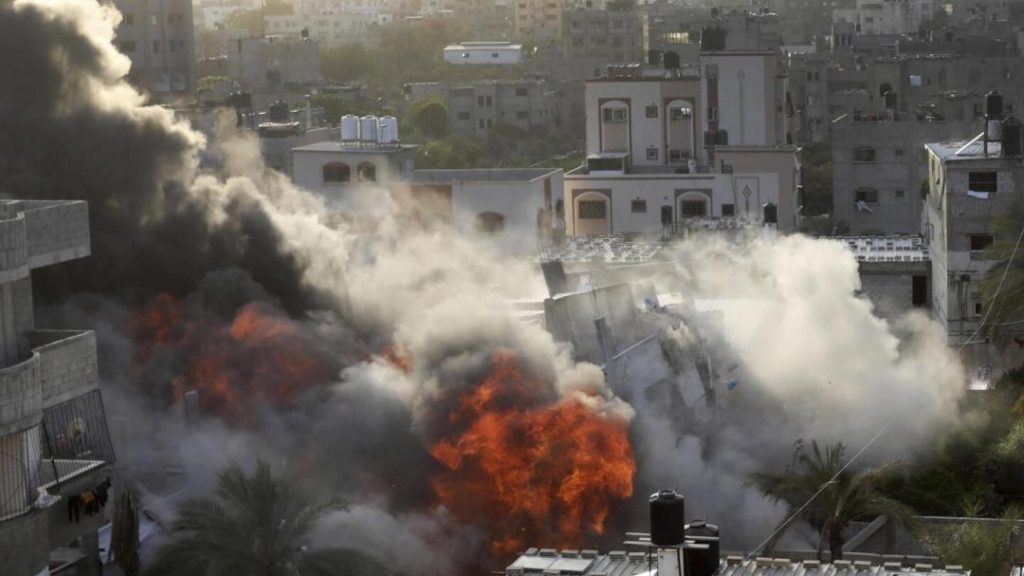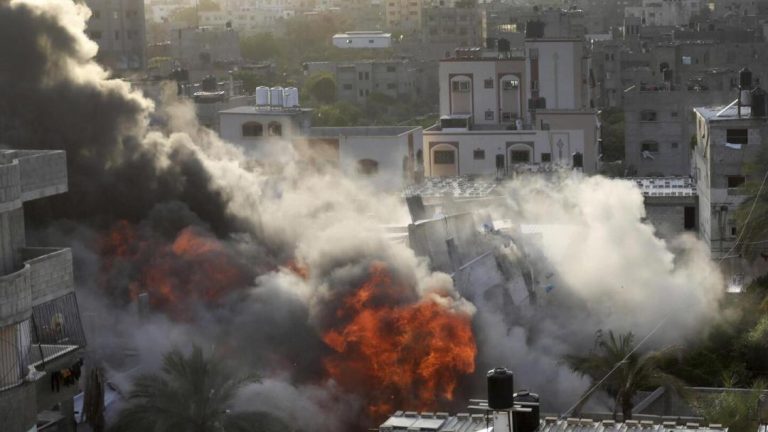
Good Friday Turns Tragic as Israeli Strikes Kill 58 in Gaza
As Christians around the world observed Good Friday with solemn rituals and remembrance, tragedy struck Gaza, where Israeli air raids took the lives of at least 58 Palestinians in a single day. The deadliest assaults occurred in Gaza City and the northern region, though bombings were reported across the entire Strip – from Khan Younis to Rafah – according to medical personnel.
The attack on Good Friday, a day of contemplation and reverence for Christians, has sparked widespread outrage and grief among Palestinians and international communities alike. The Israeli military claimed that the airstrikes were aimed at targeting Hamas militants and their infrastructure, but the devastating consequences have left many questioning the moral justifiability of such actions.
According to eyewitness reports, the Israeli airstrikes began early on Good Friday morning, with a series of loud explosions rocking the Gaza Strip. Medical sources reported that the first wave of attacks targeted residential areas in Gaza City, causing widespread destruction and chaos. The sounds of ambulances and sirens filled the air as emergency responders rushed to the scene to assist the injured and recover the dead.
The majority of the fatalities were civilians, including women, children, and the elderly. Many families were left without homes or loved ones, as the airstrikes reduced entire neighborhoods to rubble. The United Nations Relief and Works Agency for Palestine Refugees in the Near East (UNRWA) reported that at least 200 people were injured, with many more still trapped under the rubble.
The Israeli military’s justification for the airstrikes was to disrupt the activities of Hamas militants, who had been launching rockets into Israel in recent days. However, critics argue that the disproportionate use of force is a violation of international law and a flagrant disregard for human life.
“It’s a war crime, plain and simple,” declared Dr. Mona El-Khoury, a Palestinian physician who worked at Gaza’s Al-Shifa Hospital. “We’re talking about innocent civilians who were caught in the crossfire. The Israeli military is using excessive force, and it’s unacceptable.”
As the news of the attacks spread, international condemnation poured in from governments and human rights organizations around the world. The United Nations Secretary-General António Guterres called for an immediate cessation of hostilities, urging both sides to prioritize the protection of civilians.
The United States, a longstanding ally of Israel, released a statement expressing “deep concern” over the situation, but stopped short of condemning the Israeli military’s actions. The European Union, however, was more vocal in its criticism, with the European Commissioner for Foreign Affairs, Josep Borrell, calling the airstrikes “indiscriminate” and “disproportionate.”
As the people of Gaza struggled to come to terms with the devastating consequences of the attacks, many were left wondering how such tragedy could occur on a day meant to be a celebration of peace and redemption. Good Friday, a day that commemorates the crucifixion of Jesus Christ, is typically marked by solemn processions, prayers, and acts of charity. Instead, the people of Gaza were forced to confront the harsh realities of war and occupation.
In the aftermath of the attacks, the people of Gaza are left to pick up the pieces and mourn the loss of their loved ones. The trauma and grief will be felt for years to come, as the survivors struggle to rebuild their shattered lives.
As the world grapples with the fallout from these tragic events, one thing is clear: the cycle of violence and retaliation must be broken. It is time for all parties involved to come together and work towards a lasting peace, one that prioritizes the protection of civilians and the promotion of human rights.
Source:
https://newskarnataka.com/world/faith-flickers-in-gaza-as-bombs-fall-on-good-friday/20042025/




